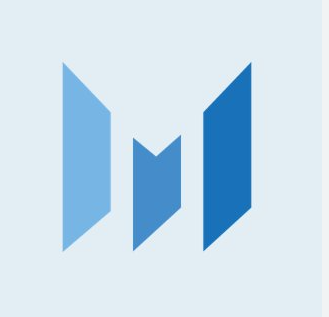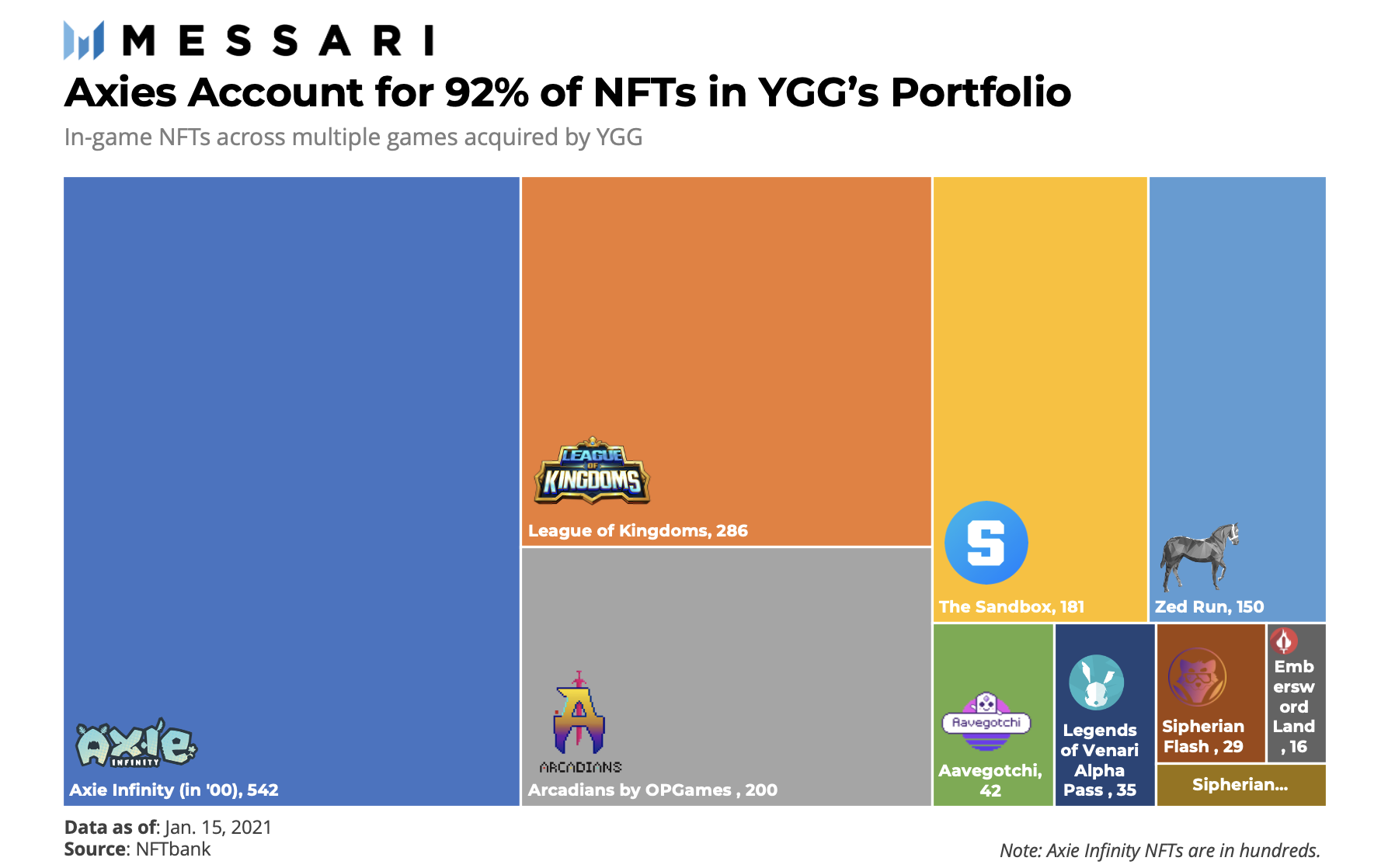Messari: An In-Depth Analysis of the Operation Mechanism and Features of Yield Guild Games

Author: Duy Nguyen
Original Title: 《Yield Guild Games: The Ally of Gamers》
Compiled by: Hu Tao, Chain Catcher
NFT games have recently swept the blockchain world. Notably, Axie Infinity has led the play-to-earn (P2E) trend and gained immense popularity within the community, setting a historical high of $364 million in August 2021. This game inspired the establishment of Yield Guild Games (YGG), a P2E gaming guild and investment DAO. Although NFT games remain an emerging market with inherent risks, they have the potential to scale significantly in the coming decades, and YGG aims to become a leader in this untapped market.
Yield Guild Games: A Unique Business Model
As the GameFi market emerged at the intersection of blockchain gaming and decentralized finance, YGG positioned itself as a decentralized autonomous organization (DAO), focusing on in-game NFTs and decentralized game investments, aiming to accumulate assets in the burgeoning virtual economy. YGG's core business can be likened to a combination of Berkshire Hathaway and Uber, as YGG acquires various NFT assets from different games and rents these NFTs to players who need initial capital (in-game NFTs) to earn money.
Since players initially needed Axies to farm SLP in Axie Infinity, some Axie holders began renting or providing "scholarships" to players without startup capital. These scholarship recipients pay a specific amount of interest to NFT lenders. YGG scaled the scholarship model to a larger extent by providing NFTs to new players (scholars) to start playing immediately without any upfront costs. Players receive 70% of the earnings, community managers enjoy a 20% commission, and YGG retains the remaining percentage.
How to Join the YGG Guild
To join YGG, participants need to mint their YGG guild badge to officially become a guild member and start their gaming adventure. This badge will serve as their visa to access the YGG website and participate in various activities, including registering for scholarships, unlocking exclusive features, and participating in esports events.
As of now, YGG's total revenue is approximately $13 million, with the majority coming from Axie Infinity, whose profits have only been surpassed by Ethereum in the past six months. In September alone, scholars generated 20 million SLP (the reward token in Axie Infinity), valued at $1.24 million, with YGG enjoying a fair share of $124,000. With Axie Infinity recently launching its own DEX Katana and the total number of active users continuing to surge, it will increase the value of SLP, thereby enhancing the value of YGG's portfolio.
NFT Balance Sheet as a Business Model
YGG has rapidly expanded its revenue sources by investing in a diversified portfolio of income-generating assets. As of September 2021, YGG held approximately $850 million in assets, including in-game NFT assets, liquid tokens, and locked DeFi tokens.
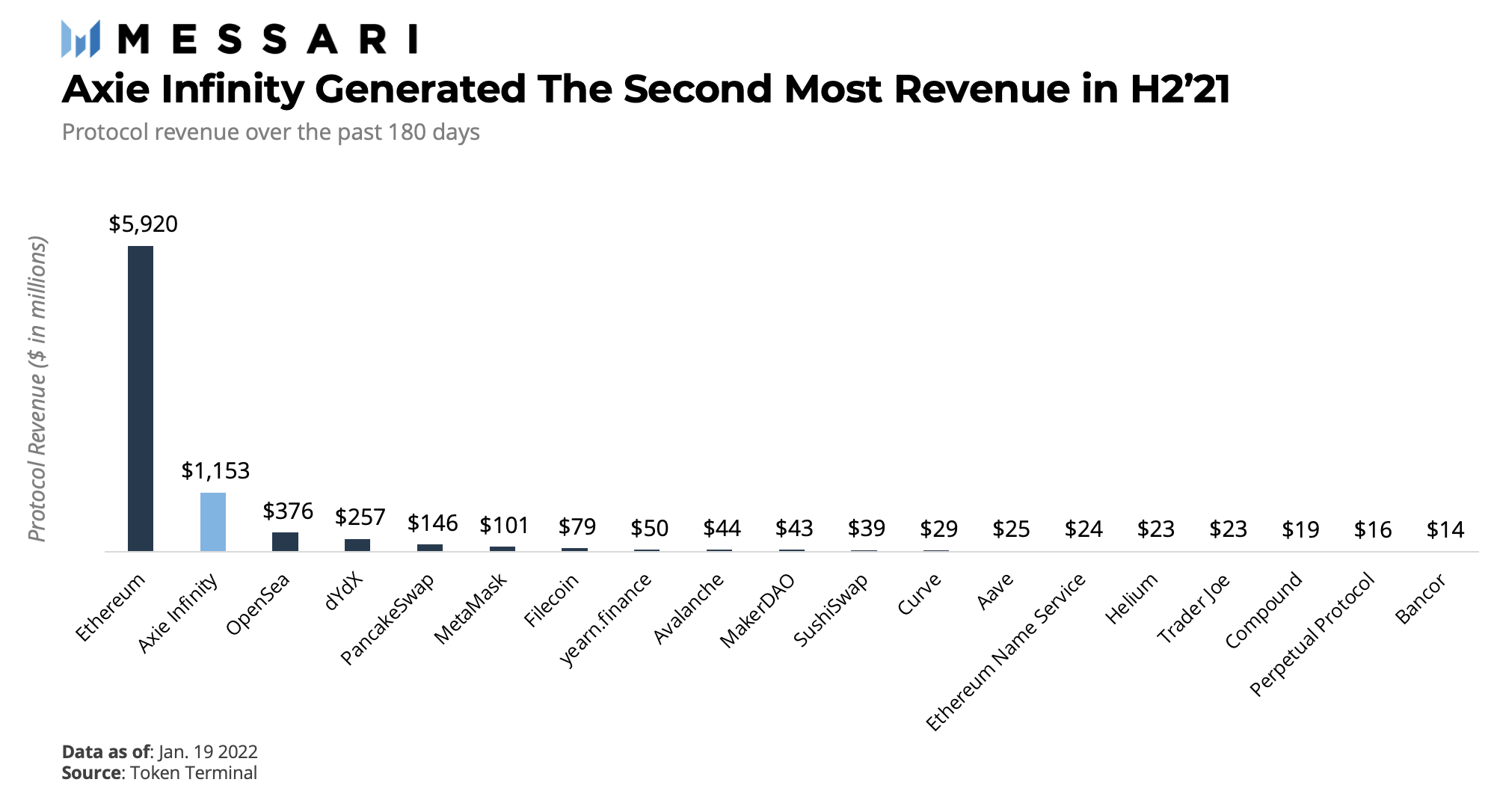
To bring the masses into the metaverse through GameFi, YGG has been actively establishing partnerships with game developers and adding various NFT assets to its portfolio so that the community can explore different genres and ecosystems. Currently, YGG has nearly 63,000 community members, holding approximately $18 million worth of 38,000 NFTs, including rare items from 12 games (with numbers still increasing). This includes several games showing strong potential (besides Axie Infinity):
- Aavegotchi : A pixelated NFT game based on Tamagotchi, allowing players to farm tokens, lend land, and participate in mini-games and governance.
- Sandbox : A blockchain-based version of Minecraft and Roblox, where players can create their own items and trade them as NFTs. The project recently raised $93 million, led by SoftBank.
- Star Atlas: A space-themed blockbuster game expected to astonish the global gaming community in the coming months.
YGG serves as an index for potential blockchain games. Games must meet three criteria for YGG to participate as an investor—having accessible virtual land, a native token, and reward mechanisms within the economy. By investing early in new NFT games, YGG can acquire exclusive items, providing YGG scholars with a competitive edge over non-guild players, thereby increasing engagement and the likelihood of game success.
Building the Guild
As a DAO, YGG has its governance token—YGG—which can be used to vote on business-related decisions and equity rewards. The community received a significant portion of the token supply, with up to 45% of the token supply specifically allocated for community members. To further optimize the DAO and align it with the community, YGG introduced subDAOs dedicated to each game it owns. Each subDAO has its own wallet and governance token, allowing guild members to vote on customized strategies, reward mechanisms, and even cultural aspects representing each region globally (for example, Vietnam and the U.S. will have separate guilds and rules for Axie Infinity).
YGG SEA is a prime example of the first subDAO, primarily focusing on underserved markets in Southeast Asia, such as Indonesia, Thailand, and Vietnam, to help develop gaming communities. As new games are launched and more members join, these subdivisions will provide greater flexibility and scalability, offering more effective management and localized community awareness. In short, YGG DAO consists of many subDAOs that contribute to the collective hub in different ways.
To illustrate, a subDAO is like a ship, with community managers as the captains, driving the development of their sub-guilds through a series of strategies such as recruitment, education, and leadership. Through mentoring sessions, subDAOs enable gamers to enhance their skills to earn more rewards. Moreover, the better the performance of guild members, the more revenue YGG generates.
The success of subDAOs is crucial for the overall growth of YGG, as the main DAO holds proportional tokens in each subDAO, thus enjoying proportional earnings from the subsidiaries. For instance, YGG can benefit from the revenues generated from NFT assets and League of Kingdoms by holding its subDAO token YGGLOK.
The Next Stage for Gamers
Unlike traditional games where in-game items are only valuable within a specific game and controlled by the game operators, items in blockchain games are 100% owned by players and can be converted into real currency (stablecoins or fiat). The primitives of NFTs and blockchain enable new games to decouple central markets and grant asset ownership to gamers. Players can now decide how to use their virtual assets on their own terms.
Additionally, some NFT games like Axie have introduced breeding features, allowing players to cultivate new creatures with unique traits, thereby increasing the value of their NFT collections. These innovations, combined with the "play-to-earn" mechanism, have the potential to drive greater player adoption and retention. It also encourages more aspiring gamers to invest their time and energy into NFT games as a career path for earning daily income. YGG's scholarship program is dedicated to this concept, aiming to enrich millions of people globally through this novel economic idea.
Moreover, the role of YGG community managers is not only to train players to become the best they can be to achieve expected earnings but also to teach them one of the most critical skills of this decade—cryptocurrency literacy. By learning how to convert game tokens into cash through DEX, players can make their first foray into the GameFi world and prepare to learn more complex concepts within the blockchain ecosystem, such as Staking and Farming.
In this sense, YGG can serve as an entry mechanism for newcomers into crypto gaming, potentially attracting more talent to join the guild. It is safe to say that gamers can view YGG as their supportive leader, guiding them on this exciting journey.
Risks of the Guild
Currently, YGG's revenue heavily relies on Axie Infinity, so they need to depend on the continued success and growth of the Axie Infinity ecosystem to remain profitable. The DAO has been investing in numerous Web3 games to diversify its portfolio and mitigate the risk of devaluation of individual holdings.
Another risk YGG faces is that most P2E-based games are characterized by a focus on making money, which may not be sustainable in the long run. Players may prioritize earning money over playing games, and if the expected incentives are no longer provided, they may abandon the fun. That said, YGG needs to coordinate with crypto game developers to continuously redesign economies that prioritize culture and community building. Additionally,
A Brief Outlook on the Gaming Industry
Gaming is the most accessible medium for educating newcomers and introducing them to the world of blockchain and cryptocurrency or generally emerging technologies, as people tend to acquire information faster through game-based learning. For example, people learned about AR/VR through PokemonGo and Web3 through Axie Infinity.
According to a report by DappRadar, in the second half of 2021, over 50% of unique active wallets in the entire blockchain industry were connected to GameFi, surpassing the total number of users in DeFi and NFTs, reaching 1.4 million. This means that more people than ever are entering the blockchain world and interacting with the ecosystem.
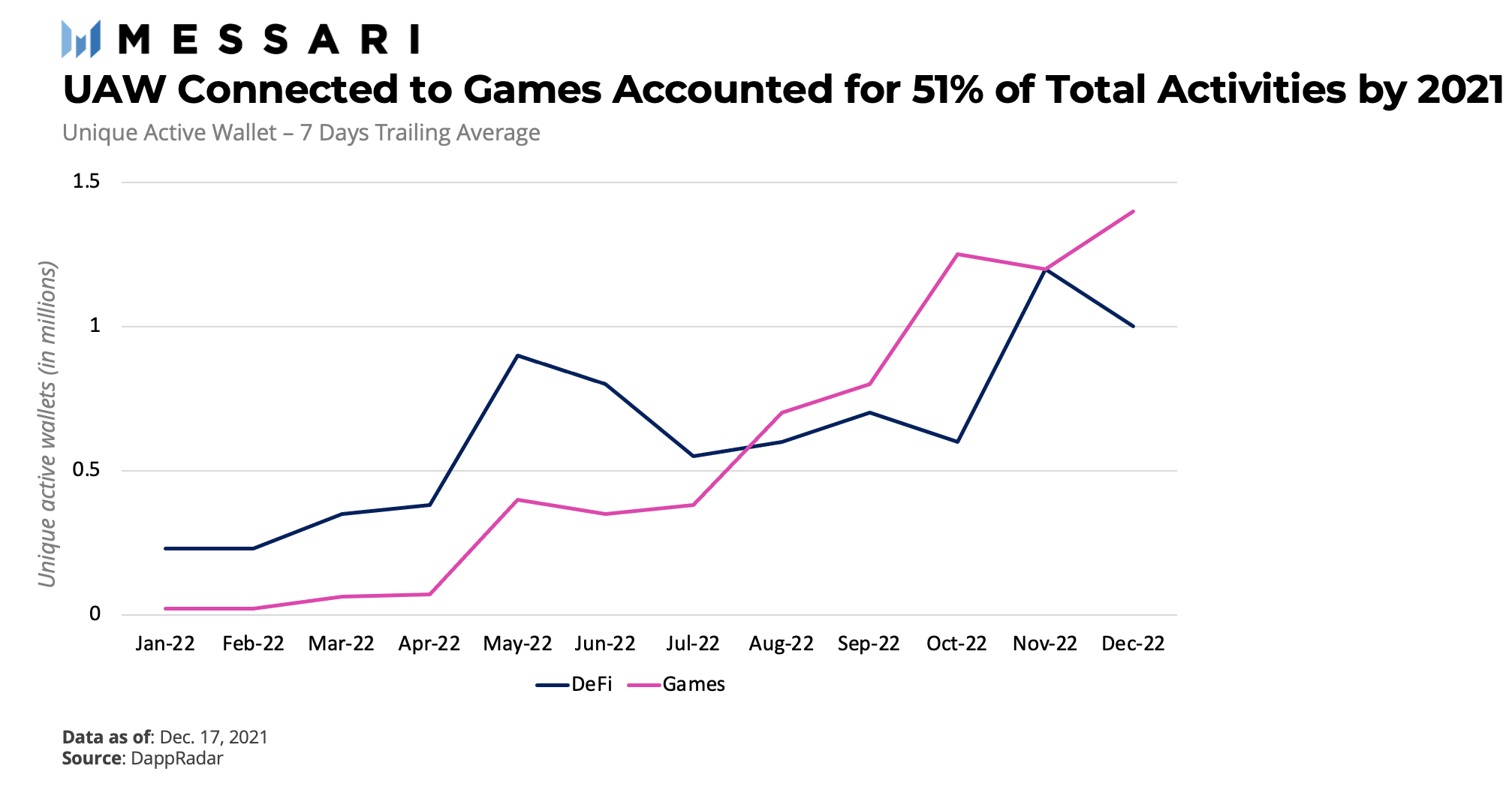
With the growth of active users, it is projected that by 2025, the global gaming market will be valued at approximately $365 billion, with a compound annual growth rate of 16%. Meanwhile, the proportion of revenue generated from virtual goods purchased in games has also been on the rise over the past decade and may reach 95% of total gaming revenue in the next five years.
With this positive outlook, YGG can capitalize on this market and become one of the earliest strategic investors in the GameFi industry. Although new technological trends always come with risks, those who dare to embrace uncertainty in the early stages of GameFi may be in for substantial rewards.
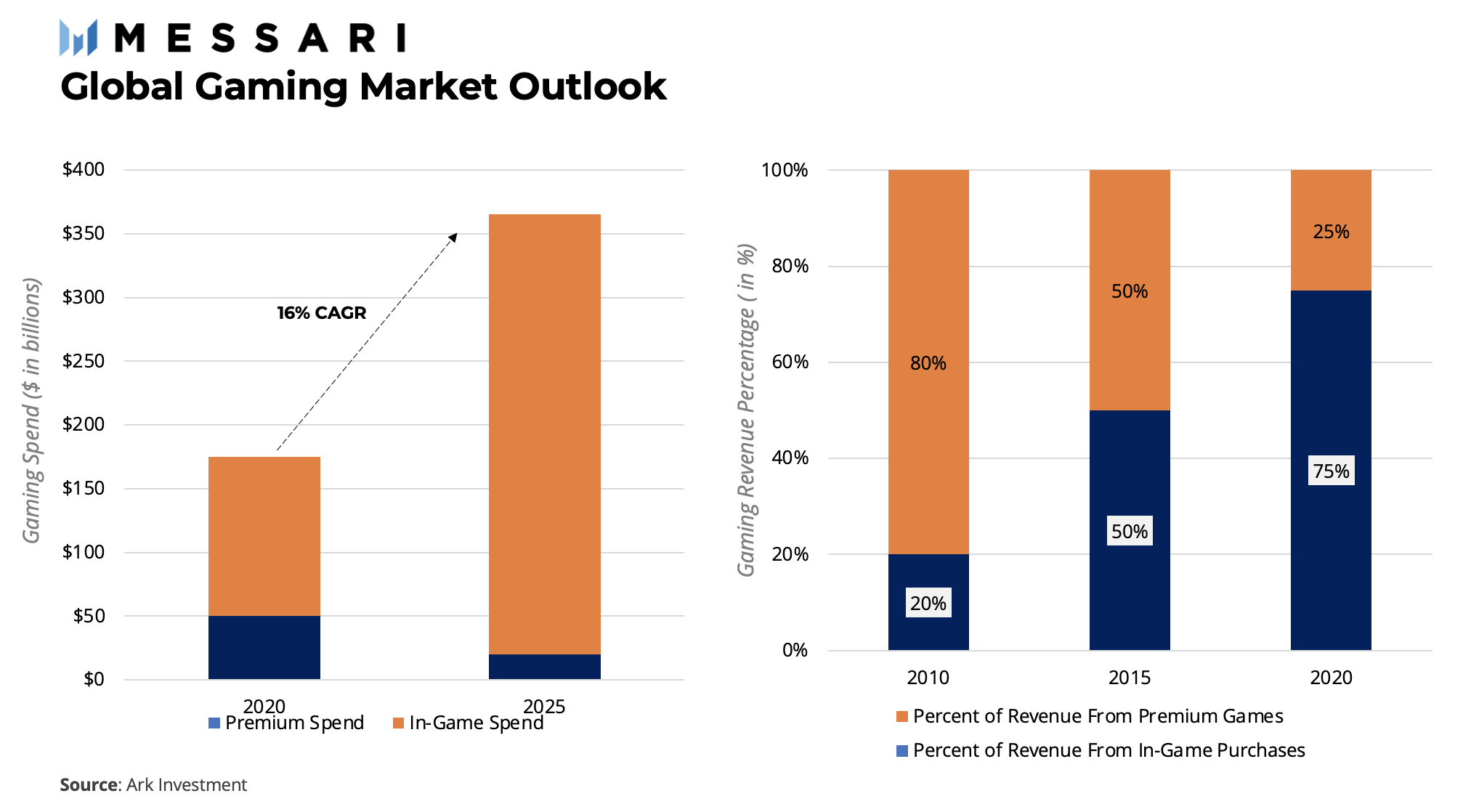
Final Thoughts
As technology advances, more people are participating in the online world and increasingly investing in digital identities. With Facebook recently rebranding to Meta, the world is turning its attention to the potential future of the metaverse. GameFi has the potential to be a trigger for explosive growth in blockchain and broader adoption of Web3. The substantial investments by tech giants like Microsoft and Ubisoft in crypto gaming indicate that the market has begun to respond to this phenomenon. As an early adopter, YGG is positioning itself at the forefront of the NFT gaming space by funding promising projects and building a global army of gamers. With these efforts, YGG's future is worth watching.


